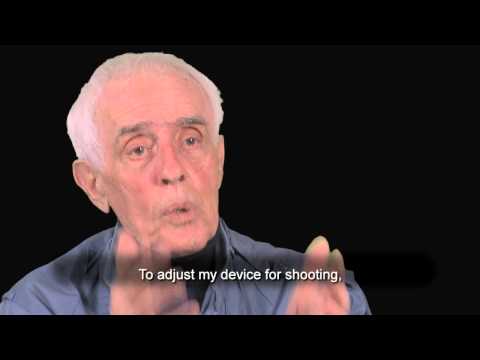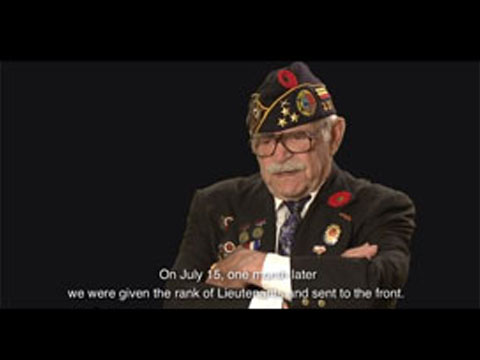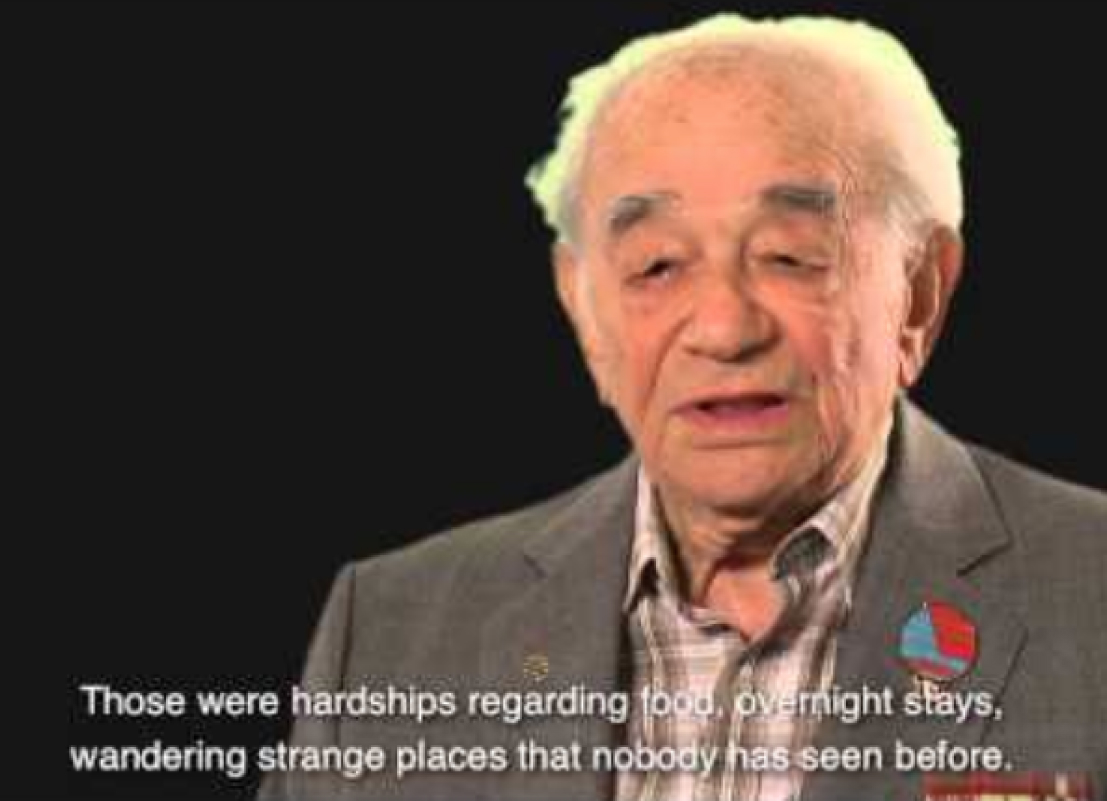
Valentin Rabinovich
Born December 25th 1922 in Riga, Latvia.
Interviewed In: Toronto, Ontario
Medals Awarded: Order of the Patriotic War (1st and 2nd Class), Medal for Defense of Leningrad and Victory over Germany In The Great Patriotic War
“Once I started working a case, I carried it through”
Private In Border Detachment – Lithuania, Belarus, Konigsberg: One of 3 Jews to work at NKVD (precursor to KGB) investigating German POW’s for war crimes at a camp near Minsk.
Boris and his family were evacuated to Kazakhstan when the war began in 1941. Once he was of age, Boris returned to Belarus and enlisted in The Red Army in 1944. He was initially stationed in a border detachment, fighting against Vlasov’s army, Lithuanian Forest Brothers, and The Ukrainian Nationalist Organization (OUN). Boris’ first action against Nazis came while he was looking for water in a small Belorussian village near Vasilishki: “As it turned out a big paratrooper group had landed, 300 men dispersed around all houses in the village hoping to stay until the night falls and attack the rear of our troops. The band was liquidated and we were recommended for medals.” At The Battle of Konigsberg in 1945, Boris’ detachment was responsible for ensuring no German soldiers outflanked the Soviet troops attacking the city:
“Konigsberg was surrounded and attacked. The city was a major stronghold. Our regiment did not participate in the attack though. Our task was to liquidate those who had been sent behind our front lines.”
Boris joined the NKVD after the war. He was 1 of 2 people to make it through training out of an initial class of 17. In 1948, Boris’ was tasked with investigating POWs for war crimes at a camp near Minsk:
“There were 30, 000 POWs in the camp. I had to interrogate them about their activities during the war. If they had not been involved in crime against civilians killing or burning down we sent them to Germany. We were 50 or so investigators working in the camp.”
Boris found former Olympic boxer Paul Schwiefer in the camp and made him his assistant. He developed a reputation as a tough and thorough investigator:
“There was a newspaper article about me in ’49. A general used to say ‘you get to Kravitz – you go to prison’ If they were involved in punitive measures… that was our task to find out. I remember interrogating a German. I asked him if he had been on the Russian front. He said ‘No’. ‘Where were you?’ ‘In Lemberg’. I didn’t know a thing about Lemberg. I looked up a map – it turned out to be Lvov. In ’39 Lvov was part or the Soviet Union. He was a Burgomaster. The investigation revealed his crime and he was hanged in Minsk in ’48. They were tried by ‘a Troika’ The whole trial was performed by three persons, Minister of State Security Lieutenant-General Tsunava, Republic Prosecutor Bondar, and Central Committee Secretary Gorbunov. We reported cases and they made their judgments – exile in Siberia for year or execution by shooting, depending on the case reported”.
Boris left the army in 1950. He immigrated to Israel before settling in Canada.

Born December 25th 1922 in Riga, Latvia.
Interviewed In: Toronto, Ontario
Medals Awarded: Order of the Patriotic War (1st and 2nd Class), Medal for Defense of Leningrad and Victory over Germany In The Great Patriotic War

Born: 1922 Kherson, Ukraine. Passed Away: August 13, 2014 Montreal, Quebec.
Interviewed In: Montreal, Quebec
Medals Awarded: Medal for Battle Merit, Medal For Defense of Stalingrad, Medal For Defense of Moscow, Order of the Red Star, Order of the Patriotic War (1st and 2nd Class) and Victory over Germany In The Great Patriotic War

Born April 29th 1918 Vasilkov, Ukraine.
Interviewed In: Montreal, Quebec
Medals Awarded: Medal For Defense of Stalingrad, Order of the Patriotic War (1st and 2nd Class), Order of the Red Star, Liberation of Vienna and Victory over Germany In The Great Patriotic War
Medals Awarded: Medal For Defense of Stalingrad, Order of the Patriotic War (1st and 2nd Class), Order of the Red Star, Liberation of Vienna and Victory over Germany In The Great Patriotic War